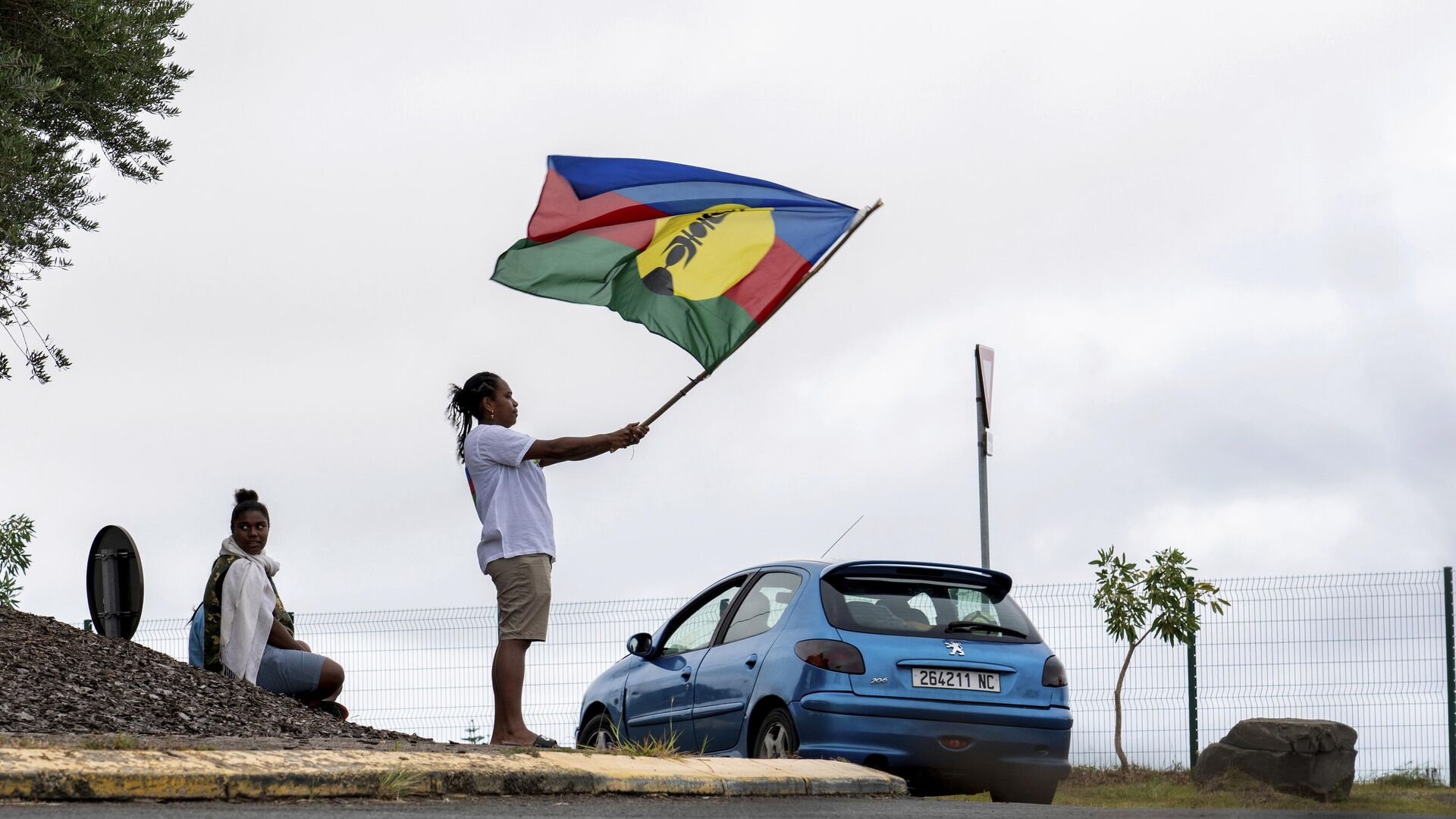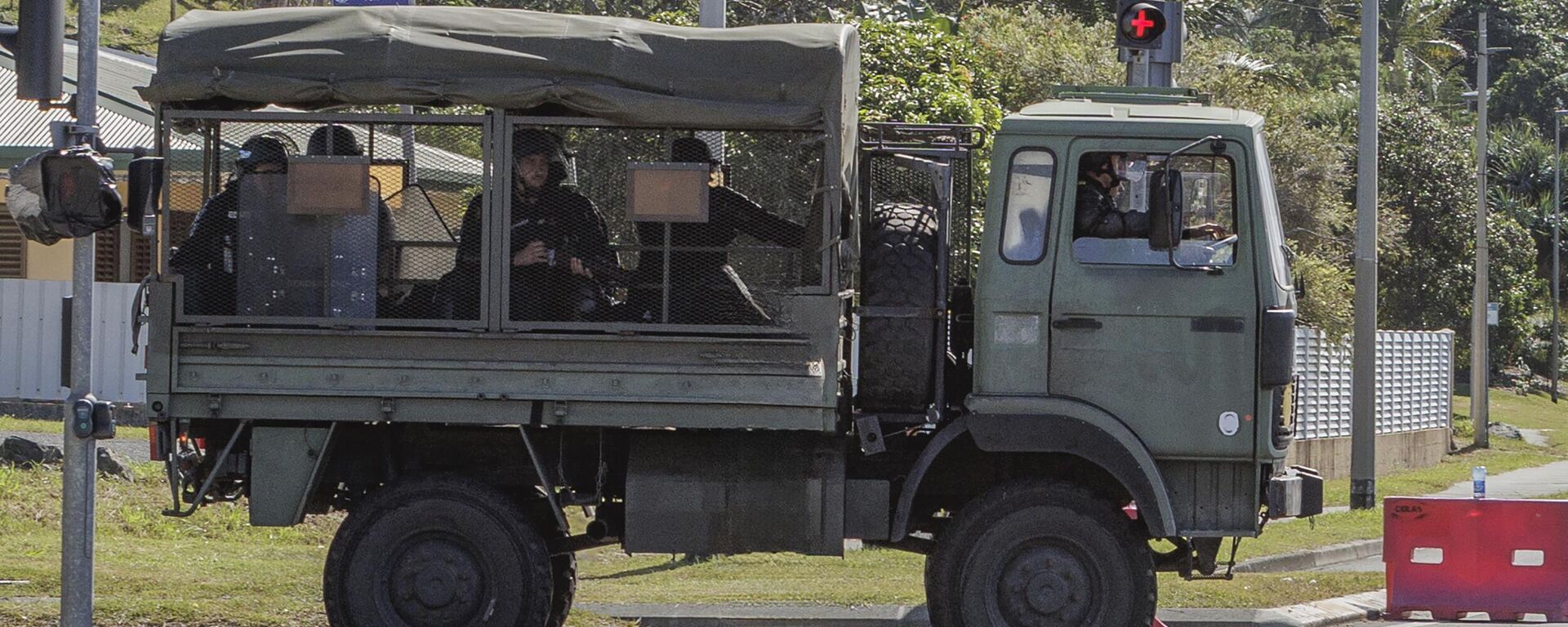'Shake Off the Shackles': France Struggles to Keep Its Colonies

© AP Photo / Nicolas Job
Subscribe
Since the 1998 Nouméa Accord, France agreed to give the island nation more political power, with only New Caledonia natives and long-term residents being eligible to vote in provincial elections and local referendums.
On Thursday, Sputnik reported that the French government had deployed military units to New Caledonia after a state of emergency was declared in the French Island Territory amid violent mass protests. The unrest is a response to Paris-backed changes to local voting laws. The island nation is between Australia and Fiji, and has been a French territory since the 19th Century. The indigenous Kanak people make up about 40% of the population.
The peace activist, writer and teacher, KJ Noh and analyst Steve Poikonen sat down with Sputnik’s The Critical Hour on Friday and discussed the ongoing unrest in the island nation.
“This was originally a British slave colony, and then it became a French slave colony and a French penal colony that looked a little bit like Australia. And the indigenous Kanak people were enslaved. They were kept in reservations,” Noh explained. “Essentially, an independence movement started after WWII, and it was violent and brutal. It was not unlike what we saw in Algeria with the French doing violent counter insurgency.”
“But eventually the French decided that they would make accommodations with the Kanak people for independence, and in 1988, they signed what's called the Matignon Agreement, agreeing that within 10 years, they would hold a referendum for full independence. When 1998 came around, the French, instead of holding the referendum, said, ‘oh, you have to wait another 20 years’. This is called the Nouméa Accord, and this was essentially kicking the can down the road for another 20 years,” Noh suggested.
The damage from the riots in New Caledonia amounted to about 200 million euros in three days, French media report
— Sputnik (@SputnikInt) May 16, 2024
More than 100 stores and businesses were burned or looted in one province alone, according to BFMTV.
France said on Wednesday night that it was sending troops to… pic.twitter.com/HZrJzHMKv1
“This new legislation from Paris, it has said that new settlers to Caledonia can vote in Caledonian elections, including the referendum. This is essentially a plan to prevent independence,” he added. “It's very, very clear. And not only do they want to allow new settlers, new European, new French settlers to vote, but also the French still control immigration. So they decide who gets to go into Caledonia and who gets essentially to tilt the voting public.”
On Thursday, France accused Azerbaijan of fomenting the riots in New Caledonia, with French Interior Minister Gérald Darmanin saying that the violence has been actively supported by Azerbaijan. Philippe Gomes, the former president of the government of New Caledonia has also claimed that Azerbaijan is bankrolling the pro-independence Kanak and Socialist National Liberation Front. The Eastern European country has strongly rejected the accusations.
“Azerbaijan has always been a strong supporter of the nonaligned movement. And with their Baku Initiative Group, they have, you know, strongly verbally supported these independence movements in the French territories, and the French are using this to characterize this as external interference,” Noh explained.
Azerbaijani President Ilham Aliyev has repeatedly accused France of neocolonialism and supported independence from France. The country has also founded the Baku Initiative Group, which brings together 14 political movements across the former French Empire in an effort to decolonize.
❗️France deploys an army at New Caledonia ports and airport.
— Sputnik (@SputnikInt) May 15, 2024
TikTok is banned after riots, the Prime Minister said. pic.twitter.com/fM53WXKx3b
“We have to understand this in the larger global context, which is that this essentially is yet another signal of the rise of the multipolar world that is colonized countries taking out the colonizer,” he added. “They no longer want to be colonial or neocolonial vassals of France, regardless of how the French characterize it. They want to shake off those colonial shackles.”
“The French do not want to give up their empire,” said Noh. “They want to keep their colonies, and then, of course, there are domestic considerations as well. Macron is not looking good. He does not want to be the one who lost yet another territory.”
Commenting on the French neocolonial ambitions Poikonen highlighted the recent fails of Paris in maintaining control over what used to be its overseas territories.
“They got frog-marched out of Niger, and Mali and Burkina Faso. The nickel that they want from New Caledonia is just part of the green energy jam where they're trying to sell people a sustainable future built on, you know, harvesting all the rest of the minerals out of the ground and destroying the planet in the process,” the analyst clarified.
“And Macron knows that but he lost what 70% of France's uranium when they got kicked out of Niger. They're losing contracts. The thing that they're ultimately fighting over, I think, is to maintain some sort of international influence as far as shipping lanes are concerned. And, other than that, save face and try not to look like they're getting spanked everywhere they go, everywhere they are,” Poikonen added.





